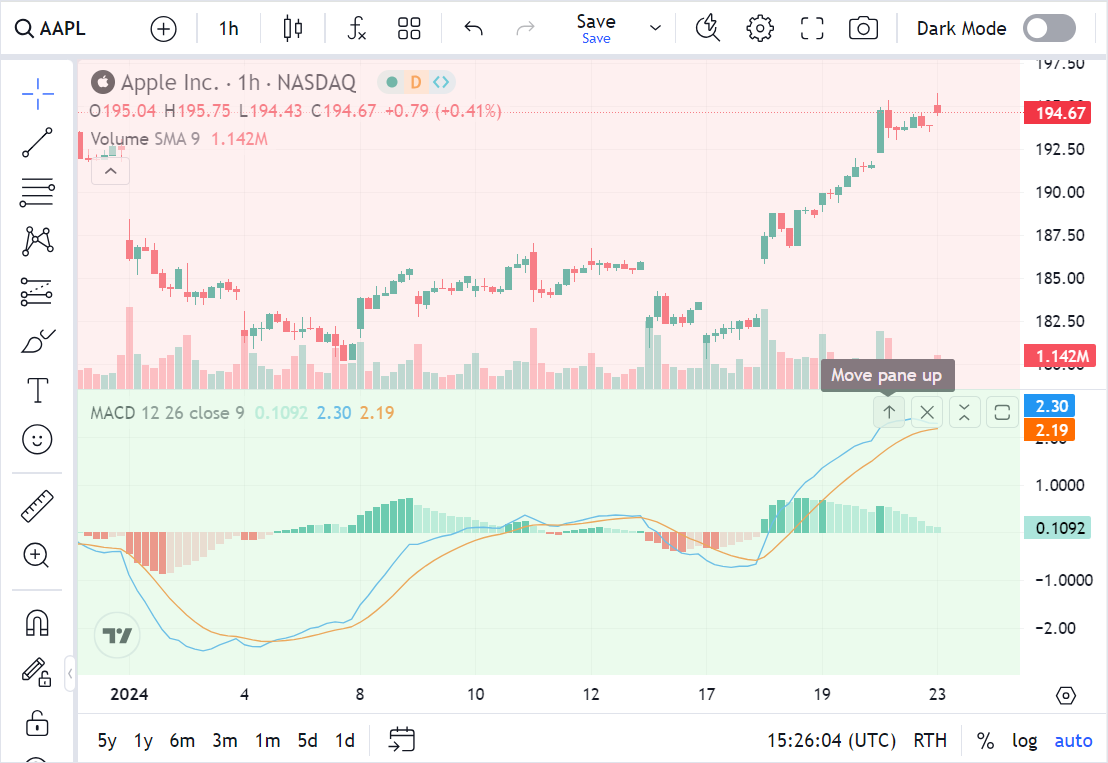Glossary
This article contains terms that are used in the Advanced Charts documentation.
Trading terms
Bracket order
An order that helps users limit their losses and secure their profits by bracketing positions with two opposing stop-loss and take-profit orders. Refer to Bracket orders for more information.
Execution
The completion of a buy or sell order for a financial instrument. An execution involves matching a buyer and a seller and transferring ownership of the financial instrument.
Individual position
The amount of a singular holding or investment in a financial instrument.
Limit order
An order to buy or sell a financial instrument when a given or better price is reached. This order type guarantees a specific price but does not guarantee immediate execution.
Limit price
The maximum price a buyer is willing to pay or the minimum price a seller is willing to accept.
Market order
An order to buy or sell a financial instrument at the current market price. This order type guarantees immediate execution but does not guarantee a specific price.
Net position
The difference between an investor's total number of open long and short positions at any given time.
Order
A request made by a trader to buy or sell a financial instrument at a specified price and quantity. An order can have various attributes, such as a limit price, stop price, and duration. Depending on whether an order has been executed or not, it can be in various statuses such as canceled, filled, placing, or rejected. Refer to Orders for more information.
Order duration
The time during which an order remains active.
Pip
The minimum price movement for Forex symbols. For more information on how to display pips, refer to the Price format section.
Position
The amount of a financial instrument held by an investor.
Stop-loss order
A type of order designed to limit losses by automatically closing a position at a given price when it moves unfavorably.
Stop order
An order to buy or sell a financial instrument at the market price as soon as it reaches a certain level.
Stop price
A trigger price at which an order becomes a market or limit order.
Take-profit order
A type of limit order that closes a position at a specific price to secure a profit.
Tick
The minimum price movement.
Technical terms
Datafeed
A middleware that requests data from a server and sends it to the library. Refer to the Connecting data article for more information.
Date range
A period of time that is currently visible on the chart canvas. This range changes when users scale the chart. Refer to Time scale for more information.
Featureset
A toggle that allows you to enable or disable a certain feature. Refer to the Featuresets article for more information.
Pane
An area on the chart where a series or indicator is displayed. The picture below shows the red pane with the main series and the green pane with the indicator.

Plot
A line or area that represents indicator values on a chart.
Series
A collection of data points that represents a specific metric over time. A series can be of different styles that affect how data is displayed on the chart. Refer to Chart styles for more information.
Source symbol
A symbol that is used as a data source for a certain indicator. The indicator calculates its own data based on the symbol's data.
Spread operators
Operators that allow comparison between a financial instrument, such as a stock, and an additional variable, such as another financial instrument or a numerical value. Spread operators can be enabled in the Search Symbol and Compare Symbol dialogs.